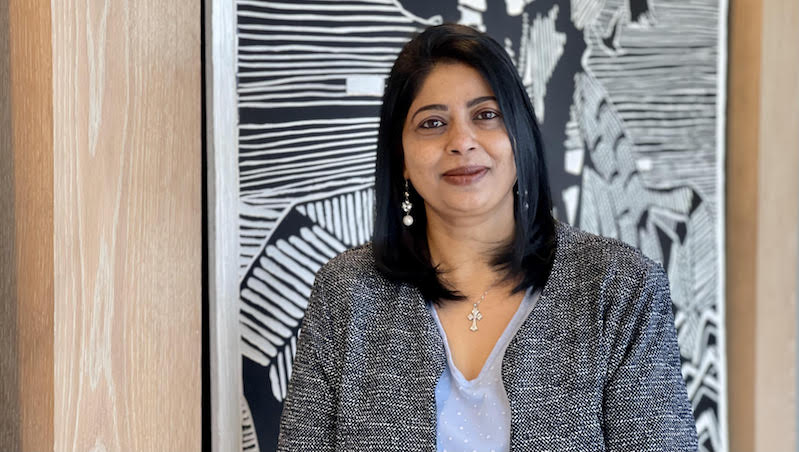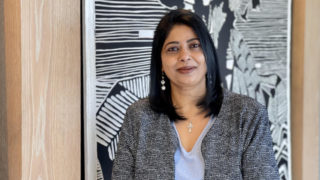It’s a tough time for entrepreneurs, between interest rate hikes affecting the bottom line and eating into cash flow, and fuel price hikes that push the costs of doing business even higher. Add inflation, skills shortages, load shedding, and the onerous administration that’s synonymous with running a small or medium enterprise (SME) in South Africa, and it’s easy to see why the country’s emerging companies need all the support they can get.
“Business owners currently need to consider the impact that future interest rate hikes will have on their business, the knock-on effect on their ability to service their debt, and finding ways to stay sustainable,” says Natisha Lazarus, Head of Business Banking at Sasfin.
“Working capital management is a crucial focus for small business leaders during this time when macro-economical factors make for a complex operating environment, with many business owners not understanding what type of finance will best fit their operating model,” she says. “They are generally engaging with ‘Big Banks’ that don’t have a deep understanding of their business and its funding requirements. As a result businesses are seeking to build relationships with banking executives who have a love for finance, a passion for innovation, and a commitment to helping each client find the most holistic solution possible for their particular business.”
While lending may be a catalyst for a business owner to approach a bank, each business owner has unique needs and risk-based characteristics that influence their banking relationship.
“There was no better time than Women’s Month to highlight that women entrepreneurs are great business partners for Sasfin, and we’ve noticed that woman-owned and -led businesses are contributing more than ever to the economy,” says Lazarus.
“Women tend to be quite conservative when it comes to acquiring debt, as they have a deep understanding of the impact of the ever changing economic cycles, and the knock-on effect to service debt. Our close relationships with our customers over the years has shown us that loans granted to female customers have a greater chance of recovery because they make it their focus to be in tune with macroeconomic events,” she says.
Sasfin’s support of this sector is enhanced by a R600m funding portfolio against a secured guarantee from FMO, the Dutch Entrepreneurial Development Bank, which was designed specifically to provide loans to women, youth, and businesses impacted by COVID-19. This arrangement made Sasfin the first bank in the world to receive the NASIRA guarantee, after its focus on financial inclusion and innovation was highlighted.
“The guarantee makes it possible for us to provide women entrepreneurs with working capital solutions that are more flexible, and our business banking team is determined to assist each business owner with funding that is aligned to their business cash flow requirements.” Lazarus adds.
As a firm believer in wanting people to grow and excel, her leadership philosophy is driven by empowerment and enablement both within her own environment and in South African business as a whole. Lazarus believes it’s vital for any leader in business to be genuinely available to their customers and their people.
“Women in business are particularly good at nurturing growth, inside our own teams and with the clients we engage with,” she says. “While strategic decisions should always be underpinned by economic value, sometimes you need to combine your head and your heart, and bring the human element to decision making.”
As a female leader in a largely male dominated industry, Lazarus has successfully merged her three decades of financial services experience with a focus on compassion and relationships, as she leads Sasfin’s growing Business Banking portfolio, with its product suite that has been specifically designed to enable SME growth.
Brandstories Disclaimer:
Brandstories is not liable for the contents of the information published on this platform. The information which subscribers publish on this website is for general information purposes only and Brandstories facilitates the ability for viewers and subscribers to access this platform. Subscribers who publish their content on Brandstories are held responsible for their own content. This includes ensuring that it is factually accurate, grammatically correct, free of spelling errors, and does not contain unsavoury content that could result in legal action. In the case of linguistic translations, the onus is on the client to ensure that the translation is accurate. In no event does Brandstories make representations or warranties of any kind, expressed or implied about the completeness, accuracy, reliability, suitability or availability with respect to the information supplied and published. This website includes links to other websites, including third party websites. Brandstories does not recommend, endorse or support any views that are held by subscribers publishing information, and within these links provided. Furthermore, Brandstories does not have control over the nature, contents and availability of information contained on these sites. Any form of reliance readers and consumers may place on information published on Brandstories is strictly at their own risk. Brandstories makes every effort to ensure that the website is up and running smoothly at all times, however Brandstories does not take responsibility for, and will not be held liable for times when the website is temporarily unavailable due to technical glitches that are beyond our control.
You may also like
-
SLAM Acquires 51% Stake in Academia – Stellenbosch’s Flagship Student Residence
-
32-year-old energy CFO inspires rising stars at Youth Energy Summit 2025
-
Spotlight Shines on SA Energy Champions at Africa Energy Forum
-
South Africa becomes global BPO contender
-
Can Business Save the World? Africa’s Role in a Time of Crisis


